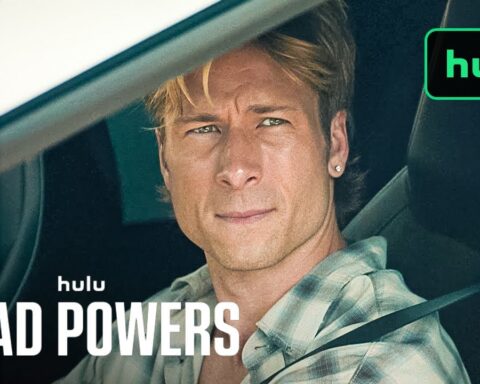After four consecutive years covering the Sundance Film Festival, January 2024 was a good time for a break. That said, the attention and interest in the numerous films submitted to the festival, as well as the emergence of new stars in front of and behind the screen, remained intact. Suncoast was one of the better received movies, and Nico Parker (The Last of Us) won the Breakthrough Performance award, so expectations were higher than usual, although once again, I started watching without knowing anything about the narrative.
Suncoast tells the story of Doris (Parker), a shy teenager with complicated family issues. Her brother has brain cancer, so any day could be his last, while her mother, Kristine (Laura Linney), directs all her attention to her son, leading to a gradual distance from Doris. Filmmaker Laura Chinn takes basic coming-of-age formulas and transforms them into a carefully written, mesmerizing study of numerous sensitive themes without ever falling into the trap of exploitation for the sake of cheap entertainment.
At the time of this review, Suncoast is my favorite film of the year. Chinn’s feature directorial debut is an undeniable success, and much of this success is because the movie is openly a semi-autobiography of the writer-director. A detail that makes perfect sense, given the intimate detail in the conversations and genuine interactions among the main characters, especially between the mother, daughter, and Paul (Woody Harrelson), a stranger present at a protest in front of the same hospice where Doris’ brother is spending his last days, who creates a surprising connection with the young protagonist.

Chinn’s screenplay is cleverly structured and, above all, respectful of all the topics it addresses. The filmmaker never makes the mistake of assuming what’s right or wrong, offering valid arguments from both sides in any thematic discussion. Whether it’s the lack of attention from a single mother to one of her children due to extreme concern for another, the anxious struggles of a teenager in making friends and being herself, the brutality of living with the expectation of inevitable grief, the extra responsibility placed on a young woman who only wants to have a ‘normal adolescence,’ or the debate about whether all lives are indeed precious, Suncoast is a true rollercoaster of emotions and moral/ethical dilemmas that are impossible to answer easily.
In fact, one of the dialogues that has remained most in my memory is precisely about the hypocrisy of ethical discussions. From school lessons to public protests, the idea that it’s possible to ‘put on paper’ what should be done in life dilemmas as personal as, for example, whether or not to end the life of someone you love, is completely absurd. Suncoast conveys a simple yet impactful message that we can all give our opinion and share what we imagine our stance and response would be in these scenarios, but only when these tragic moments happen to us can we truly deal with the true emotions of something humanly devastating.
Chinn’s dialogues emanate heartfelt authenticity, and the cast manages to elevate them even further with equally unpretentious performances. I’m unaware of the competition Parker had at the festival, but it would take an Oscar-worthy performance to surpass what easily becomes the British actress’ career-best display. Parker’s expressive eyes give Doris an aura of pure kindness, even when the character makes decisions she quickly regrets. The subtlety with which Parker handles the whirlwind of emotions accumulated by the protagonist is seen in actresses with decades of experience.

And speaking of actresses with experience, Linney demonstrates in Suncoast why she’s a three-time Academy Award nominee (You Can Count on Me, The Savages, Kinsey). Many will mention the harrowing monologue worthy of being that clip used for awards ceremonies when presenting the nominees, but it’s the consistent display of a mother trying everything to hold onto a hundred strands of problems with her two bare hands that left me overwhelmed. Whether it’s interactions with Parker, with her paralyzed son, or with a consultant from the hospice, Linney interprets a complex Kristine in an almost hypnotic manner.
Linney and Parker create such a powerful connection between their characters despite the gradual distance throughout the film. Suncoast‘s third act is enough to move any viewer, and the humanity present in the actresses’ performances is one of the main inducers of the unavoidable tears, despite the narrative predictability. Harrelson (Triangle of Sadness) deserves the same praise for portraying a character that works as a human conscience for Parker, palpably proving Chinn’s care not to provide any theoretical solution to impossible questions.
The score by Este Haim and Christopher Stracey (Anyone But You) may go unnoticed by some, but Suncoast‘s perfect climax greatly benefits from the subtle touch of the composers’ music. Chinn leaves nothing to chance, achieving an impeccable tonal balance between the most dramatic moments of the family and the most amusing sequences with the teenagers. The optimistic, positive lens with which the film ends is the cherry on top of a multi-layered cake deserving of multiple viewings.
Suncoast is a deeply moving, thematically meaningful story, written with brilliant care in addressing sensitive topics such as inevitable grief, the hypocrisy of ethical debates, and the real value of human life. A coming-of-age narrative that turns basic formulas into a complex study worthy of everyone’s attention. Laura Linney and Nico Parker deliver performances so authentically human that it will be difficult to hold back the tears. It’s the best film of 2024 to date.
Suncoast is currently streaming on Hulu in the US.






